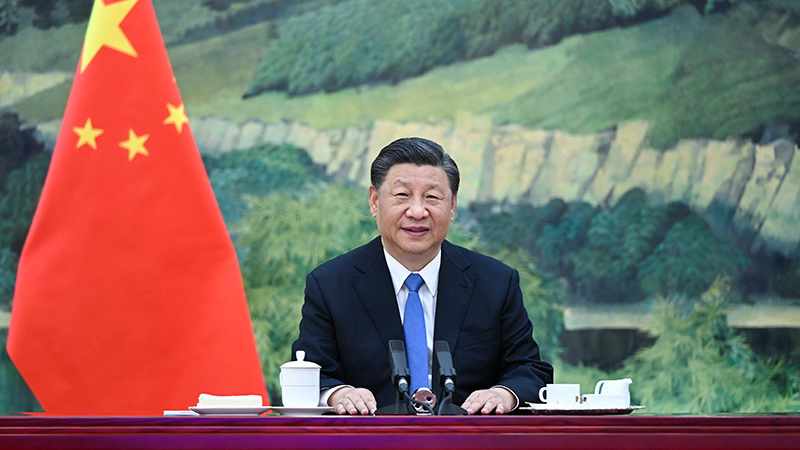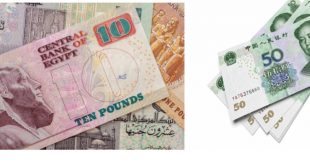Published:March 13,2023
By Gerald Mbanda

The re-election of Xi Jinping as president of the People’s Republic of China has great significance on the African continent, as China under the leadership of Xi has created a number of cooperation frameworks that have resulted into tangible benefits for both sides. China’s policy towards Africa has been and will continue to be focused on mutual respect, equal partnership and shared development.
For more than 30 years, it has been a tradition of China’s foreign ministers making their first overseas trip to Africa at the beginning of every New Year. Accordingly, this year, too, China upheld the tradition, with the newly appointed Foreign Minister Qin Gang, paying an eight-day visit to Africa. This shows the importance the Chinese leadership attaches to the cooperation with the African continent.
China has remained Africa’s largest trading partner for 13 consecutive years. It is also one of the biggest foreign investors in the continent. Trade between China and Africa reached a record $282 billion in 2022, up 11% from 2021, according to data released by the General Administration of Chinese Customs. Africa exported goods worth USD 105.9 billion to China, an increase of 43.7% from the previous year.
Over the past 10 years, China created 18,562 jobs a year on average in Africa with yearly increases, according to the Swiss-African Business Circle report. This trading partnership that benefits both sides (win-win) is expected to continue growing under the new mandate of president Xi. Unlike western countries, China has established special economic zones and shared its technology boosting industrial production that adds value to raw materials to Africa’s exports.
The Belt and Road Initiative (BRI), a global infrastructure plan conceptualized by Chinese President Xi Jinping in 2013, has greatly benefited Africa especially in terms of infrastructure development. Africa needs as much as $170 billion a year by 2025 to develop infrastructure, with an estimated gap of around $100 billion a year, according to estimates by the African Development Bank.Additionally, China has over the years provided concessional loans to African countries with no strings attached for infrastructure development, industrial development, and other critical sectors.
Some of the Belt and Road projects in Africa include; the Addis Ababa-Djibouti Railway, the Mombasa-Nairobi Standard Gauge Railway in Kenya, No 1 National Highway of the Republic of the Congo, the Thies-Touba highway in Senegal, the Port Gentil-Omboue coastal road and Booué Bridge in Gabon, the Maputo-Katembe bridge in Mozambique, the CherchellRing Expressway in Algeria, the first and second phases of the Nigeria Railway Modernization Project, the Doraleh Multi-Purpose Port in Djibouti and LomeContainer Terminal in Togo, the New Administrative Capital and electric train system in Egypt, Eastern Industrial Zone in Ethiopia, and the KarumaHydropower Project and Isimba Hydroelectric Power Station in Uganda. These projects have significantly improved economies of African countries.
The Forum on China-Africa Cooperation (FOCAC) FOCAC is another bilateral cooperation forum that has greatly boosted China-Africa practical cooperation in various areas since its inception in 2000. The amount of China’s contribution doubled at every FOCAC between 2006 and 2015, while in 2018, the amount jumped to $60 billion. In 2020, China wrote off US$113 million for various African countries, while in 2022, China cancels 23 interest-free loans to 17 African countries. China also signed exchange of letters with 12 African countries on zero tariff for 98 percent of their export items to China. Chinese businesses are increasing their investment in Africa’s agricultural sector, growing more grains, and through the initiative of “100 companies in 1,000 villages”, jobs have been created, resulting into poverty reduction and improving livelihood for the rural households in Africa.
Since the outbreak of the COVID-19 pandemic, China supported the African continent in the fight against COVID-19, at a time when the developed world looked aside, hording the critically needed vaccines and other medical supplies. By December, 2021, China had provided an estimated 180 million doses to Africa, out of over 1.8 billion doses China sent to more than 120 countries and international organizations globally. In January 2023, the China aided Africa Centre for Disease Control headquarters (CDC) was opened in Addis Ababa which will enable Africa to deal with health related issues, detect and respond quickly and effectively to disease threats and outbreaks. The CDC headquarters just like the AU conference center are land marks of the practical results of China-Africa Cooperation under Xi Jinping.
China and Africa have supported each other in different engagements. On November 15, 2022, during the 17th G20 Summit that was held in Bali, Indonesia, Xi Jinping expressed China’s support for the African Union to join the G20. In August 2022, many African leaders reiterated their commitment to the position that “Taiwan is an inalienable part of China.” African countries have also supported the Global Security Initiative (GSI) and Global Development Initiative (GDI) proposed by China.
Xi’s vision of a shared future is much appreciated in Africa as it compliments Africa’s development aspirations as embedded in the Agenda 2063 as well as the African Continental Free trade Area (AfCFTA). As Xi once put it, “to build a community with a shared future for mankind is not to replace one system or civilization with another. Instead, it is about countries with different social systems, ideologies, histories, cultures and levels of development coming together for shared interests, shared rights and shared responsibilities in global affairs, and creating the greatest synergy for building a better world.” This is what China and Africa will enjoy during Xi new term as president of the People’s Republic of China. I congratulate president Xi Jinping upon his re-election.
Gerald Mbanda is a researcher and publisher on China-Africa Cooperation
 Africa -China Review Africa -China Cooperation and Transformation
Africa -China Review Africa -China Cooperation and Transformation
